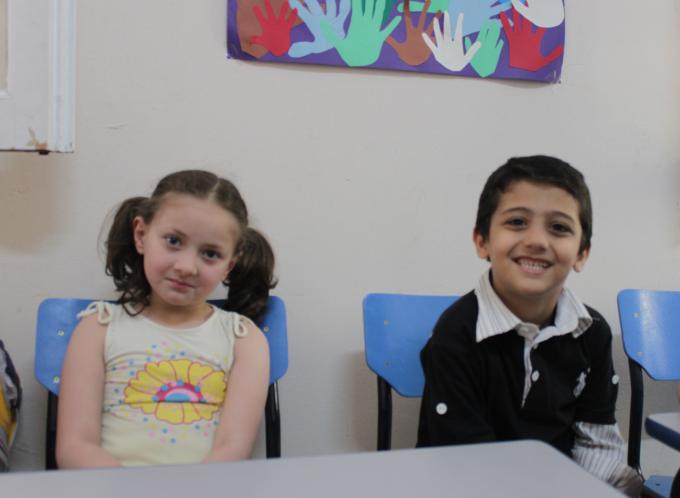Advocating for Education in Egypt

By Sayyeda Salam, Regional Advocacy Manager
I’ve been in bustling Cairo for two weeks now, working with our teams here on how we can best advocate for children and learning more about our refugee response work. Egypt now hosts close to 300,000 Syrian refugees, according to the Egyptian government. Many arrived over a year ago and are using their fast depleting savings to rent accommodation on the outskirts of sprawling Greater Cairo and other cities, like Damietta and Alexandria. There are no formal refugee camps here, as compared to Jordan, Turkey or Iraq.
I was curious to hear more about what kind of education Syrian refugee children in Egypt are receiving. Across the region, public school systems are stretched and many refugee children are out of school, losing precious months and years of education in the countries they are fleeing to. Here in Egypt, over 40% of Syrian children are not enrolled in school and for those that are classes can reach up to 120 students, with exhausted and undertrained teachers.
Additional transport costs and costs of school books make going to school prohibitively expensive for those whose savings are running out and tragically more and more children are working to support their families. At one of the Child Friendly Spaces we run (a converted building where children can come and play and draw in the afternoons) our Syrian volunteers told me with great distress of three boys, twins aged 6 and their 9 year old brother, who no longer come to school or the Child Friendly Space as they spend their days pushing car tires to the local mechanics factory.
Save the Children’s work here centres on improving the quality and inclusion offered by the Egyptian public school system for both refugee and Egyptian children, working with the Ministry of Education. We are also supporting classes in local, community centres to make sure refugee children don’t miss any more of those vital years of school. These centres offer one on one catch up tuition and regular classes. We train Syrian teachers in the Egyptian curriculum so children are eligible to take national exams.
The children I met in the kindergarten, aged 3-4, had a varied level of ambition for when they grew up – some wanted to be dentists, chefs, florists and even a dragon! But the heavy psychological impact of the conflict was apparent. One little girl was very withdrawn and her teacher told me “she used to cry every time a man came into a room. It reminded her of when armed men came into her school in Syria and started firing at the students”. Several of the older boys told me “as soon as I am big enough I want to go back to join the war in Syria and fight”.
We are doing all we can to give children alternatives, offering counseling in our Child Friendly Spaces and play activities to let them just be children again. But I couldn’t help but think of all the children we are not reaching and the need to do more, to give more and to create more sustainable solutions through our advocacy.
 Egypt
Egypt